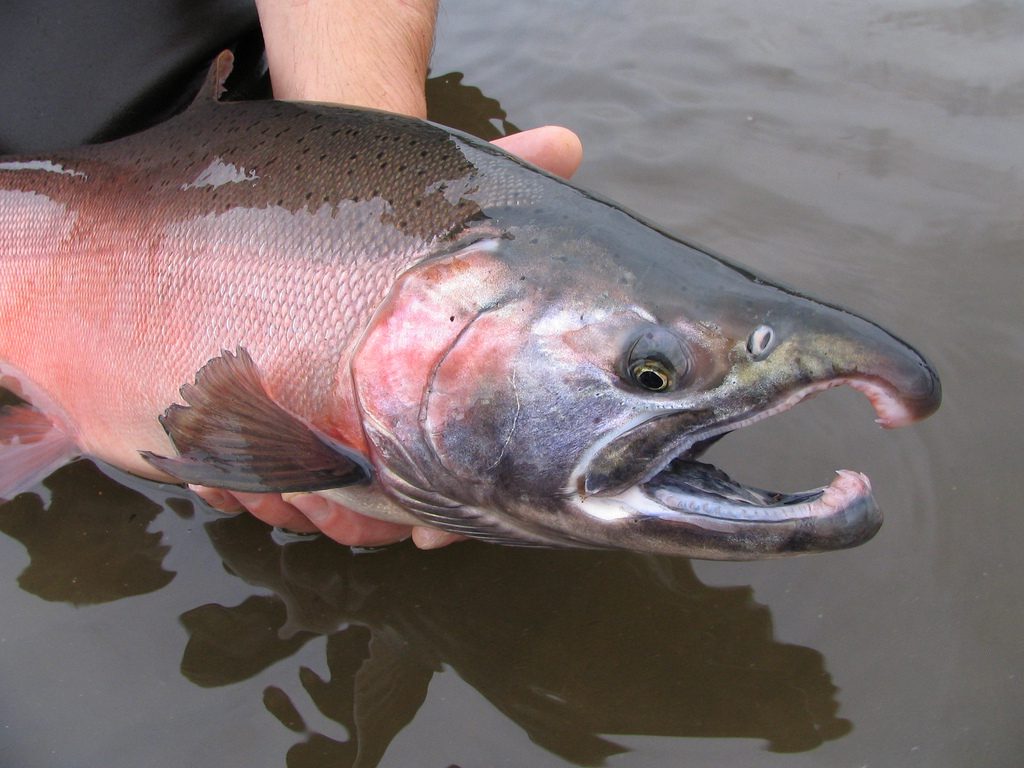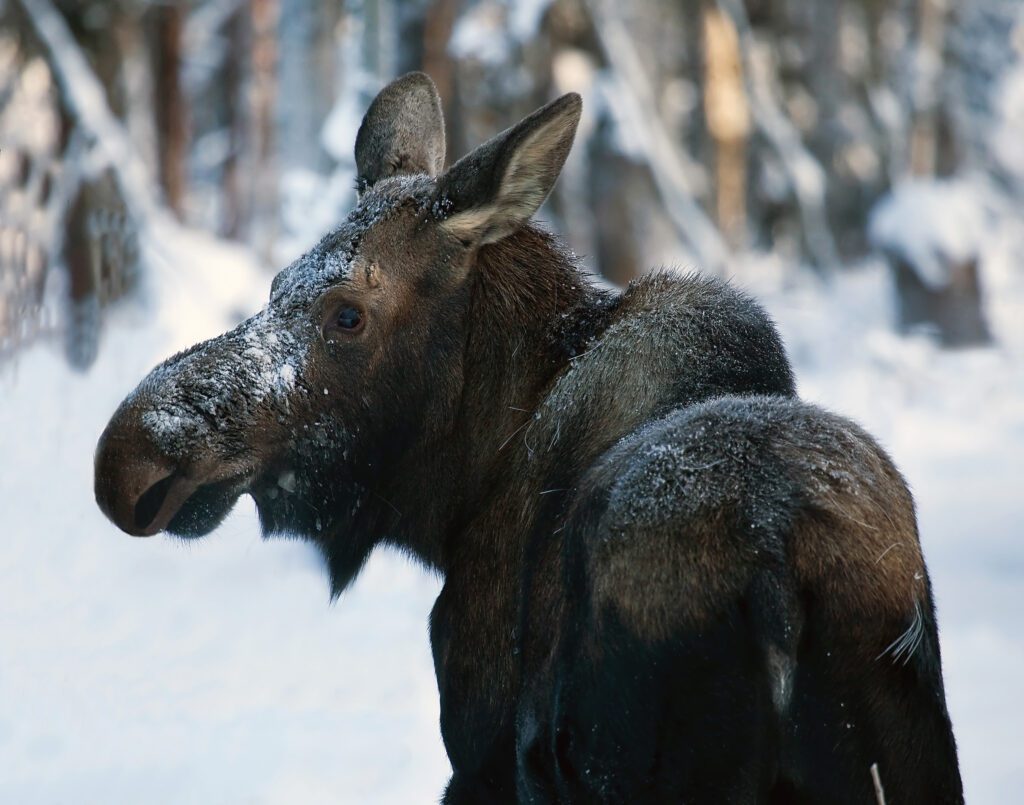For ungulates that traverse the Seward Peninsula, wildlife managers are getting bad news about population data. Moose and reindeer numbers are down, the Western Arctic Caribou Herd is less than half its peak size, and muskox are dwindling on the peninsula.
The young just aren’t surviving to adulthood. It could be a change in climate, or habitat deterioration. But for a while, local users have been wrestling with another theory.
“Well, we know without a doubt that the majority of local people blame it on predation,” said Tim Smith, vice chair of the Seward Peninsula Subsistence Regional Advisory Council, or RAC, which advises the Federal Subsistence Board.
Bears. Time and again at wildlife meetings, people reiterate: we have too many predators. The problem, though, is short of anecdotal evidence from those who live here, data doesn’t exist to back it up. The RAC met in Nome this week to discuss a multitude of fish and wildlife issues, and a strategy called “intensive management.”
“It’s an ecosystem management where you go in and try to manage all the species involved in a predator-prey relationship,” said Smith.
Smith said, in other parts of the state, this management strategy has been successful in producing more of the species that wasn’t abundant enough. Predator control is one of several tools in the program—a tool that Pat Valkenburg, former deputy commissioner of the Alaska Department of Fish & Game, said is less controversial than it was years ago, because the numbers now show that it can work. But the U.S. Fish & Wildlife Service and the National Park Service remain opposed to the plan. While federal agencies remain for the most part against the measure, state and local groups lean toward supporting it.
But we don’t yet have numbers for the Seward Peninsula. So, Smith and the RAC want to conduct a predator-prey study here to see if predation is the root problem, and if our region might be a good candidate for predator management. The first hurdle will be securing funding for the research, and the strategy itself (though it’s come a long way) is still controversial.
“It’s very contentious. It’s extremely contentious…but probably no more contentious than all of the other issues in fish and wildlife management. The problem with all these things is it’s not hard science, we’re not doing physics here. So there’s an awful lot of faith-based stuff,” said Smith. “But one of the things I like that Governor Walker said, is that ‘study hour is over.’ And this would be an applied research project—you would get answers to the specific questions you’ve been asking.”
Smith said the council will draft a letter to the Federal Subsistence Board asking for help, and then solicit funding to get the research off the ground. The experiment might include collaring animals to track mortality, or observing the effects of liberalized bear harvesting regs. The plan is still in its preliminary stages, but Smith suggested basing it in unit 22D, south of Teller.
Carl Johnson with the Office of Subsistence Management noted that good management is a product of good data…but data isn’t free.
“If you’re going to make good management decisions you have to have good science behind it, but increasingly there’s fewer and fewer surveys being done because both state and federal budgets are being tapped,” said Johnson. “So defining the issue and then finding a funding source will be a challenge.”
But besides the bottom line, there are other numbers prompting wildlife managers to ramp up their strategies: 25,000 caribou; 7,000 moose; and 5,000 deer—the number of prey species harvested by Alaskans each year. Especially in rural areas, reliance on wildlife is the way of life.
Fortunately, for Alaskans seeking to change hunting and fishing regulations on public lands, the Federal Subsistence Board is legally obligated to defer to the RACs’ suggestions. The Federal Subsistence Board runs on a two-year cycle (with alternating years addressing fish and wildlife), and wildlife proposals are being accepted now thru March 25th.
The next meeting of the Seward Peninsula RAC will be October 14-15 in Nome.







